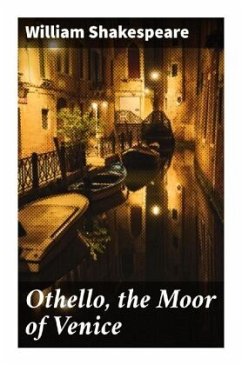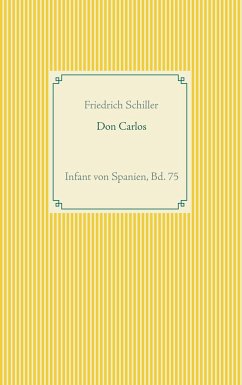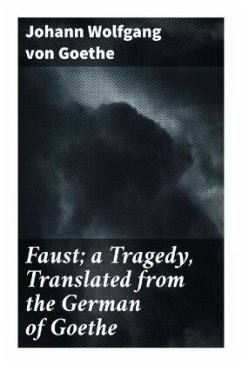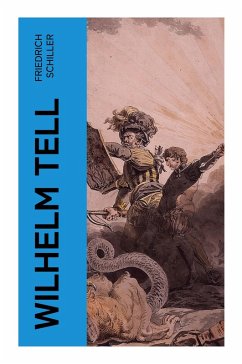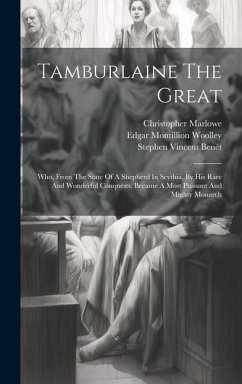
Don Carlos
A Play
Übersetzung: Boylan, R. Dillon
Versandkostenfrei!
Sofort lieferbar
11,99 €
inkl. MwSt.
Weitere Ausgaben:

PAYBACK Punkte
6 °P sammeln!
Friedrich Schiller's "Don Carlos" is a profound exploration of political idealism, personal freedom, and the moral quandaries of power within a historical context steeped in the complexities of 16th-century Spain. Written in the dramatic verse style characteristic of Schiller's works, the play weaves together themes of tyranny and rebellion, focusing on the conflict between the oppressed Don Carlos and his father, King Philip II. Set against the backdrop of the Spanish Inquisition, it serves as both a gripping narrative and a philosophical inquiry into the nature of justice and virtue, reflect...
Friedrich Schiller's "Don Carlos" is a profound exploration of political idealism, personal freedom, and the moral quandaries of power within a historical context steeped in the complexities of 16th-century Spain. Written in the dramatic verse style characteristic of Schiller's works, the play weaves together themes of tyranny and rebellion, focusing on the conflict between the oppressed Don Carlos and his father, King Philip II. Set against the backdrop of the Spanish Inquisition, it serves as both a gripping narrative and a philosophical inquiry into the nature of justice and virtue, reflecting the influence of Enlightenment thought prevalent in Schiller's time. Schiller, a key figure in the Sturm und Drang movement as well as a member of the Weimar Classicism, drew on his own experiences of political repression and philosophical inquiry to craft this compelling drama. His life was marked by a passion for freedom and a critique of autocratic rule, which resonates throughout "Don Carlos." The play encapsulates his belief in the transformative power of art and the importance of individual conscience in the face of authority. "Don Carlos" is a must-read for anyone interested in the interplay of personal integrity within the spheres of power and governance. Its rich character development and thought-provoking dialogue offer not just a captivating story but also timeless questions about morality and the role of the individual in society, making it a relevant and essential work for contemporary readers.





